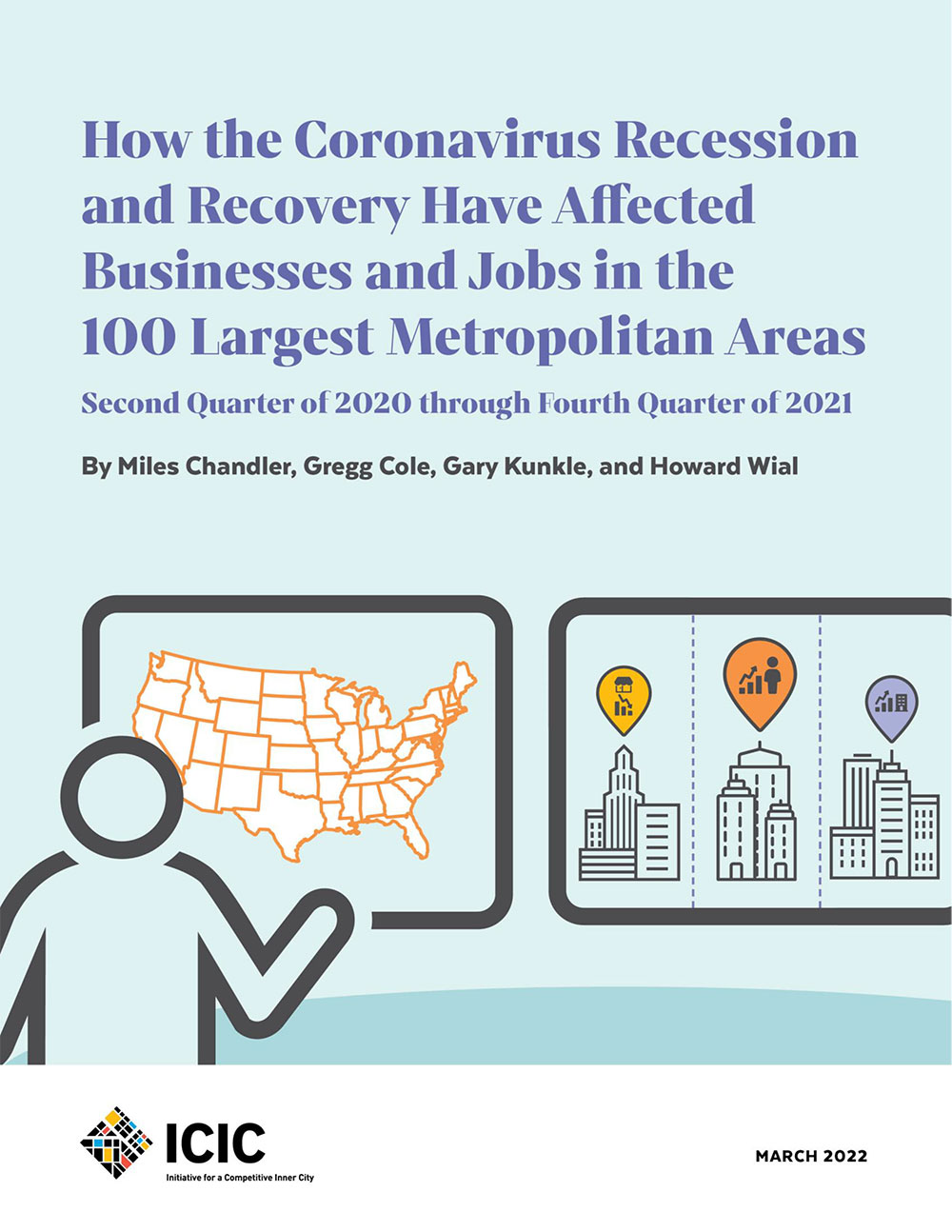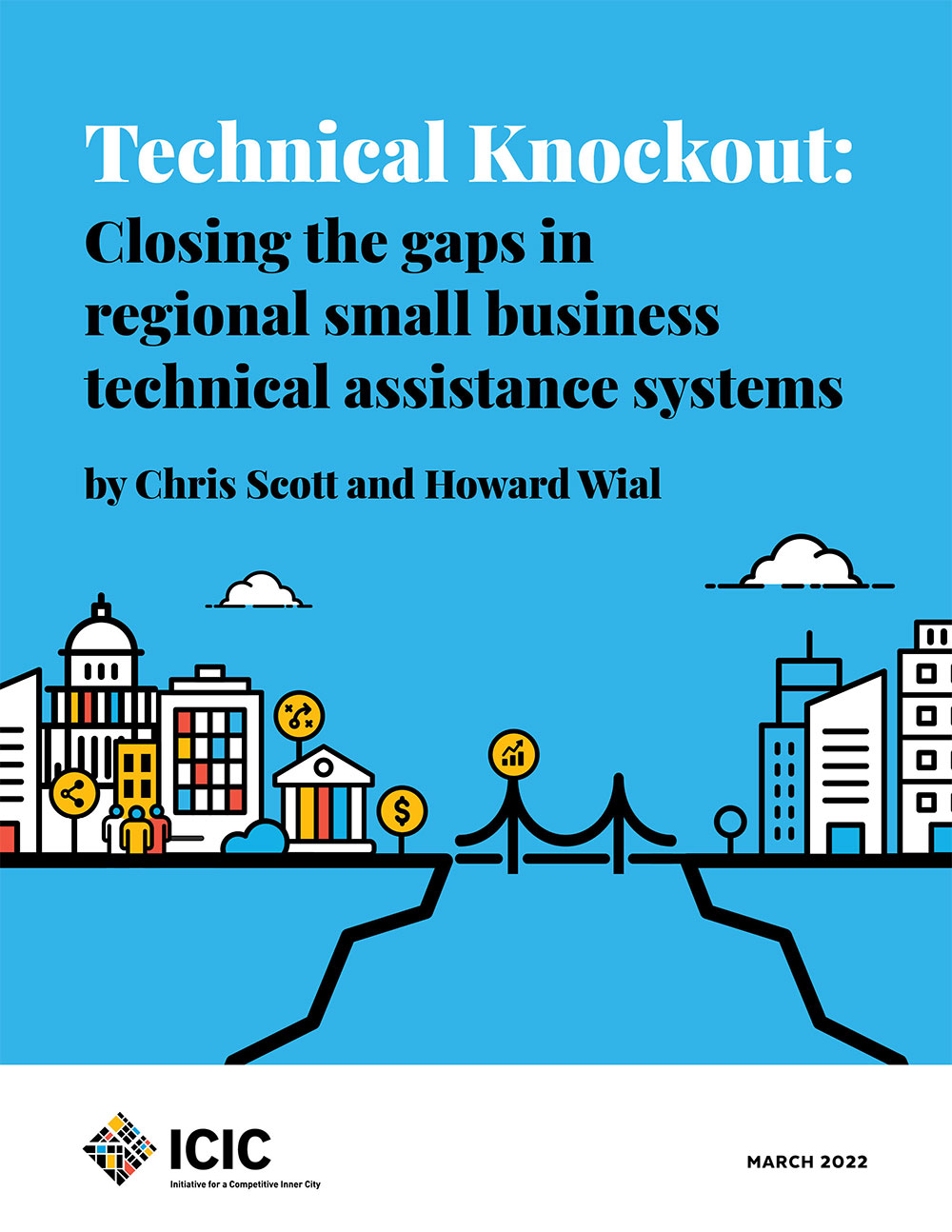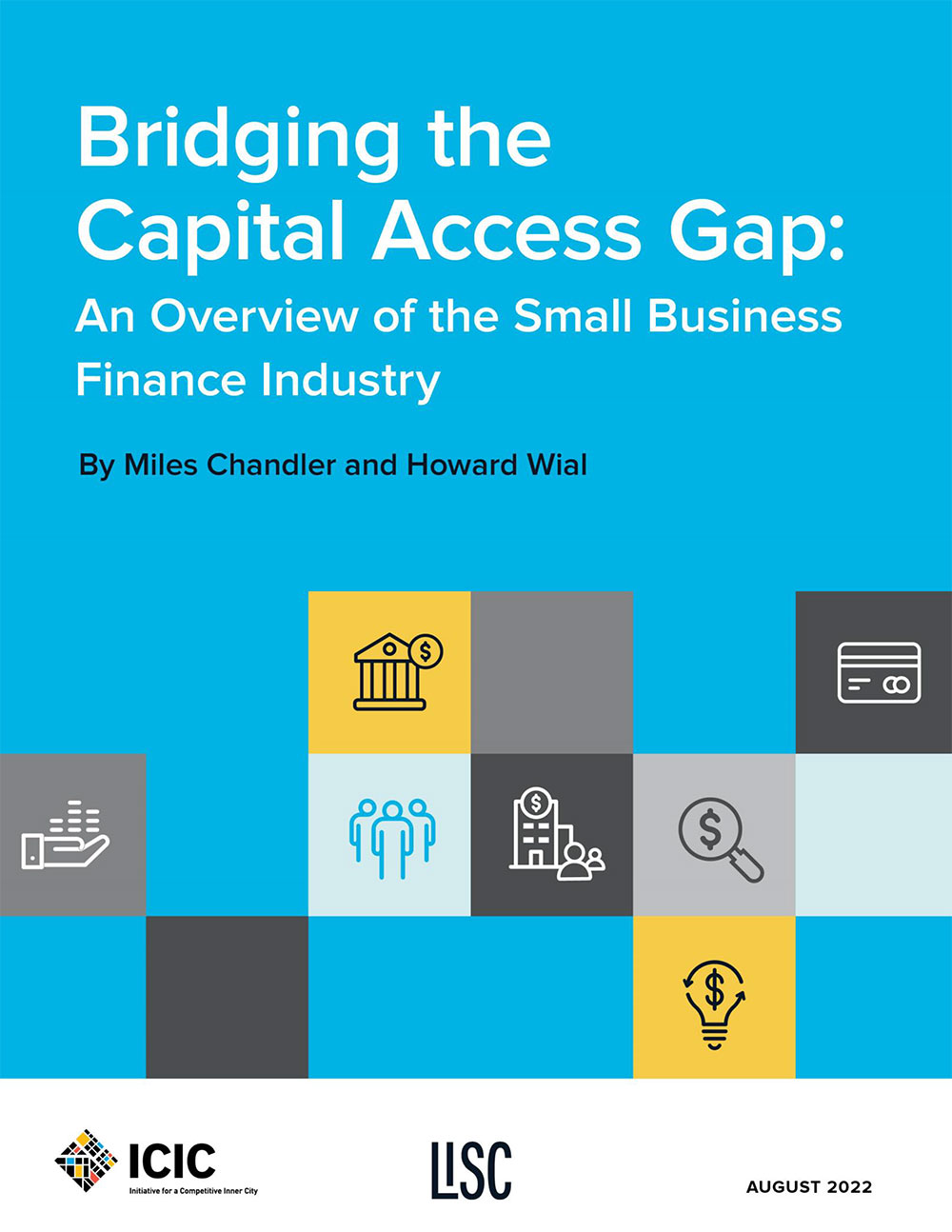Program Update
ICIC’s Research
ICIC was originally founded in 1994 as a research organization. Our research agenda has positioned our organization as the leading and most trusted resource in the economies of under-resourced communities. Our research focuses on the economic and social development of under-resourced communities, industry clusters that provide good jobs for people without college degrees, small businesses, workforce development, and racial economic disparities. We use quantitative and qualitative data to identify the competitive advantages and challenges of under-resourced communities. We believe that community and economic development should be inclusive and equitable in the process as well as in outcomes.
Impact Snapshot: ICIC’s 2022 Research
How the Coronavirus Recession and Recovery Have Affected Businesses and Jobs in the 100 Largest Metropolitan Areas
In How the Coronavirus Recession and Recovery Have Affected Businesses and Jobs in the 100 Largest Metropolitan Areas, ICIC presents the most detailed and comprehensive information about what happened to businesses and jobs in each of the nation’s 100 largest metropolitan areas during the COVID-19 recession and recovery from the second quarter of 2020 through the first quarter of 2022. We tracked quarterly changes in the numbers of businesses and jobs by under-resourced communities and non-under-resourced communities, race/ethnicity of business owners, size of business, and industry. The report is accompanied by an online data dashboard that can be used to search for customized information on what has happened to jobs or businesses in a specific business category or demographic group for each of the top 100 metros. This work was funded by the Ewing Marion Kauffman Foundation.
Quarterly Updates
First Quarter 2022 Report
Fourth Quarter 2021 Report
Third Quarter 2021 Report
Second Quarter 2021 Report
Initial Report: First Quarter 2021
Data Dashboard
The Top Metros Recovery Tracker
Related Blog Post
How Resilient Were Small Businesses during the First Year of the Coronavirus Pandemic?
Technical Knockout: Closing the Gaps in Regional Small Business Technical Assistance Systems
Technical assistance refers to services and guidance provided to small businesses that address such common needs as strategic planning, capital access, marketing, networking, financial planning, incubation, and acceleration. These services are typically organized at a regional level, but many are federally funded.
In this report, we identify region-specific gaps in technical assistance systems as well as gaps that are likely to exist throughout the nation. The most important gaps include poor linguistic and cultural diversity in technical assistance services, lack of assistance for capital access and industry-specific needs, little help identifying particular technical assistance needs and the appropriate providers to address them, and lack of assistance for an economic downturn and disaster preparedness. This work was funded in part by Kaiser Permanente.
Bridging the Capital Access Gap: An Overview of the Small Business Financing Industry
Although entrepreneurship is often touted as an arena of equal opportunity, there are major systemic barriers to realizing this ideal – one being access to capital. ICIC and LISC came together for an in-depth look at the small business financing industry and ways that business owners can use this knowledge to most effectively access capital.
Currently, women and people of color are both underrepresented among business owners and find less occupational success in owning businesses. Moreover, racial and gender inequality compound over time and result in a large gap in revenue throughout the life cycle of a small business. These dynamics are partially reflective of an environment of lending discrimination and capital access barriers, as well as cultural and educational obstacles. Working toward an equitable future in which entrepreneurship is a wealth-building tool for everyone will require dismantling systems of exclusion in capital access and educating business owners about which forms of financing best suit their needs.


